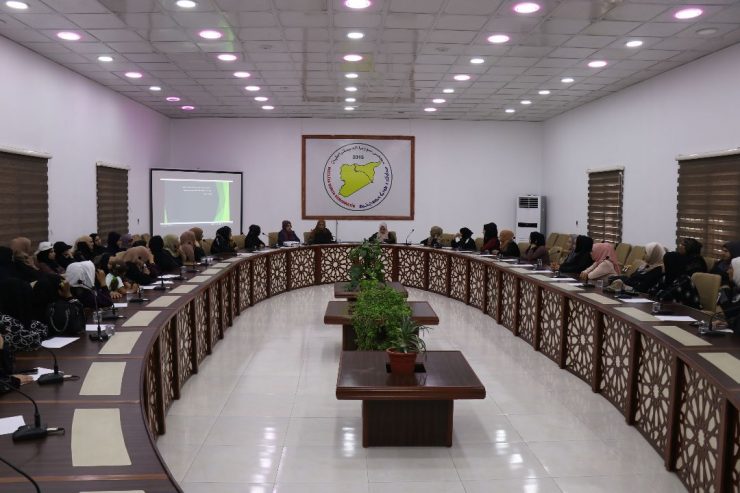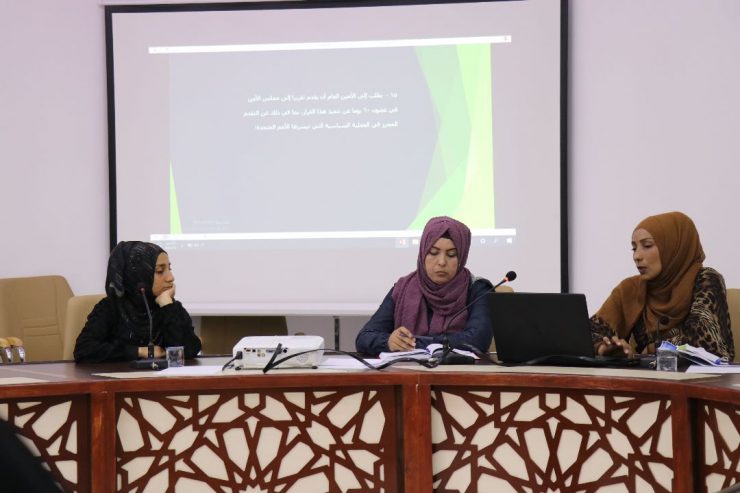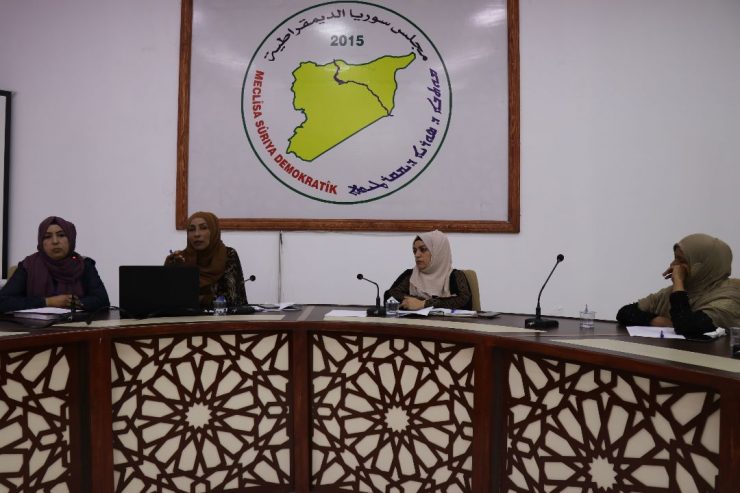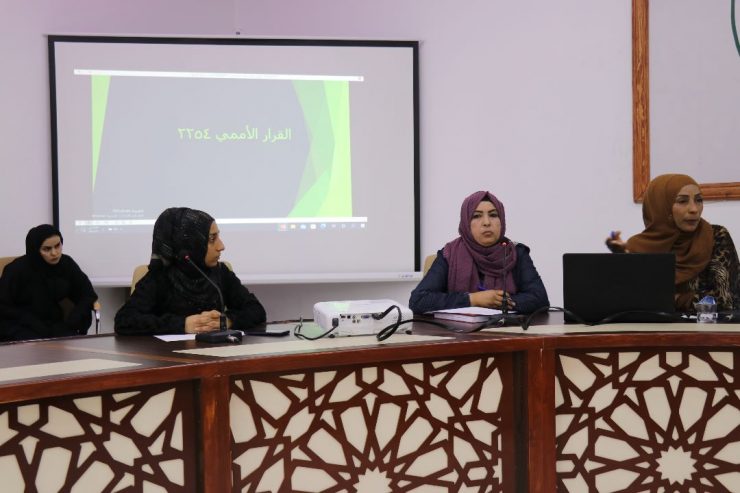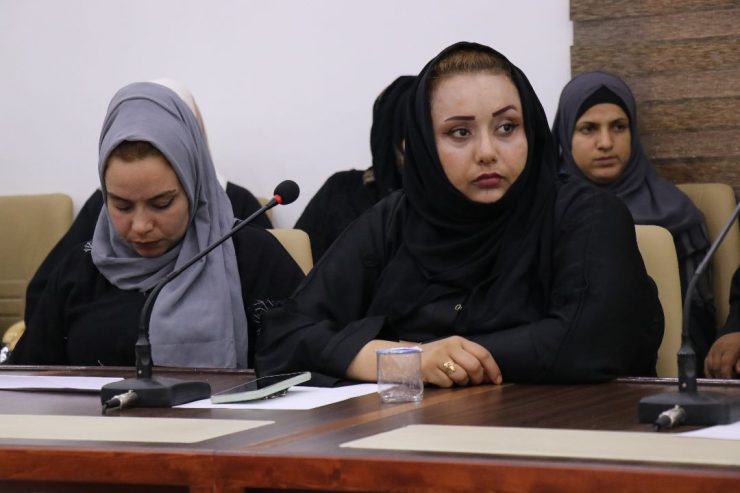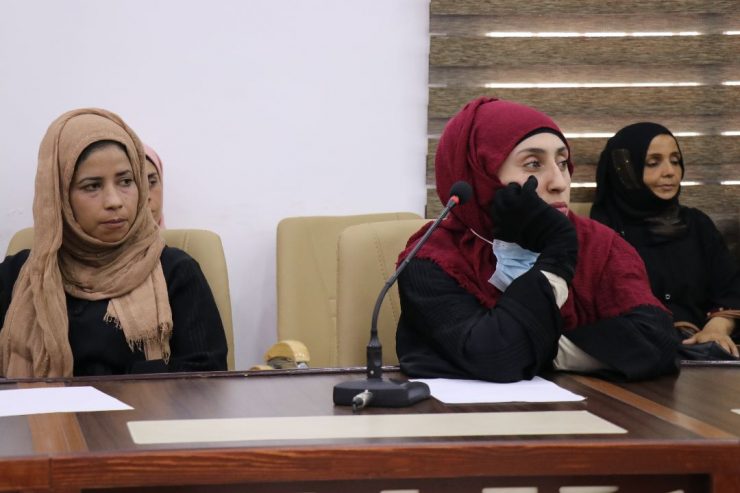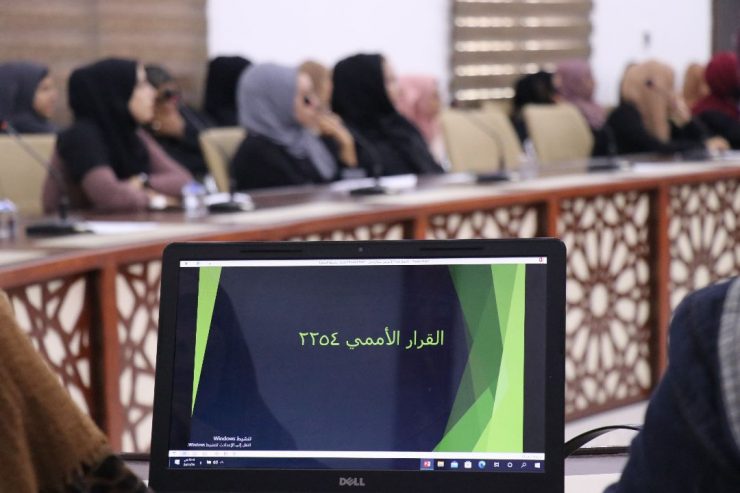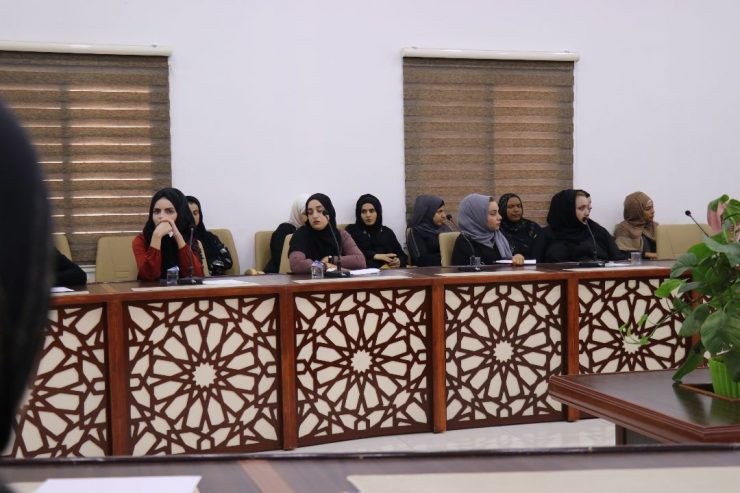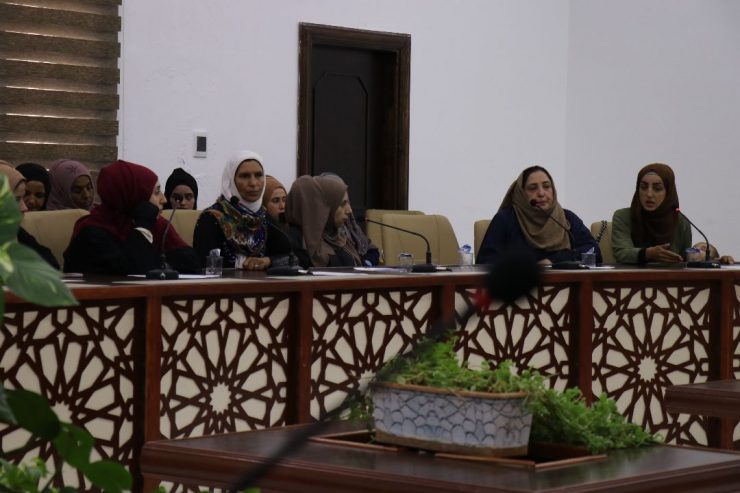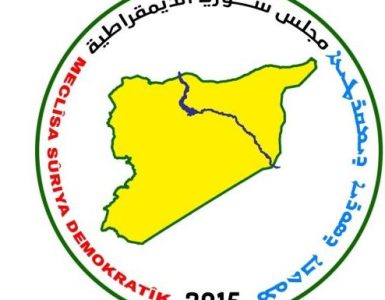A large gathering of Syrian women discussed UN resolution 2254 on the Syrian file and its implications today, on Saturday.
The dialogue session was organized by the Women’s Bureau of the Syrian Democratic Council, and members, administrators of the countryside and committees of the city of Raqqa working in the gathering were invited to it.
At the beginning of the session, Fatima Al-Muhammad, a member of the Women’s Bureau of the Syrian Democratic Council, read the articles of the UN resolution, which was unanimously approved by the fifteen countries of the Security Council on its date.
Meanwhile, Thubiyah Al-Nasser, an administrator at the Women’s Bureau of the Syrian Democratic Council, stressed the importance of the role of women in the Zenobiya Gathering in clarifying the implications of Security Council resolutions, international politics, and their implementation, especially with regard to the Syrian file.
Regarding how to expedite the implementation of UN resolutions, Al-Nasser explained that women educate society, so the more cohesive society becomes, the faster the crisis ends and vice versa. So, Al-Nasser explained the relation between the crisis and social cohesion.
As part of her participation in the session, Kanana al-Abdo from the Al-Mashlab neighborhood committee in Raqqa city spoke about the disintegration that occurred in parts of the Syrian regions as a result of its worsening crisis and multiple crises, whether economic or social crises or even international conflicts.
For her part, Mariam al-Ali, an administrator of the southern part for Zenobiya Women’s Gathering, discussed the possibility of intra-Syrian dialogue in light of regional countries’ domination, and also raised that the return of refugees to their original areas can only be through confidence-building measures.
Fatima Ibrahim, a member of the training committee in Zenobiya Women’s Gathering, stated that young age groups are most affected and most questioning about the latest political developments as they reflect negatively or positively on living conditions directly.
At the end of the session, the women present showed their interaction with the main topic of the session and participated in the propositions and supported the positivity and flexibility that the Syrian Democratic Council adopts in its cooperation for dialogue with all spectra of the Syrian people.


